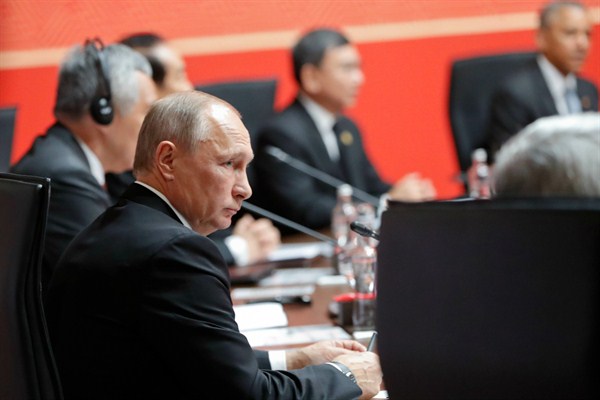Editor’s note: This article is part of an ongoing WPR series inviting authors to identify the biggest priority—whether a threat, risk, opportunity or challenge—facing the international order and U.S. foreign policy today.
Despite all the noise and attention on the threats of cyberwar, cybersecurity in the United States has gotten worse, not better. As the Russian hacking of the Democratic National Committee and interference in the U.S. election showed, leaks and other disruptions online have become new tools of state power, reflecting larger conflicts between the U.S. and its rivals. Current U.S. strategies are inadequate to respond to, much less succeed against, these new kinds of cyber conflicts. This status quo needs to change if Washington is to defend not only American democracy, but that of its allies.
Russia, China, Iran and North Korea have all used the digital environment to challenge the United States. Russia and China in particular are preoccupied with avoiding the fate of Soviet leader Mikhail Gorbachev, fearing that the U.S. is using the internet to undermine their regimes. Moscow sees this as a larger battle to regain its lost influence, restore older notions of sovereignty, and push back against universal values. This is an ideological and information battle in which the internet is a tool that U.S. adversaries both fear and have been quick to exploit to their own advantage.

